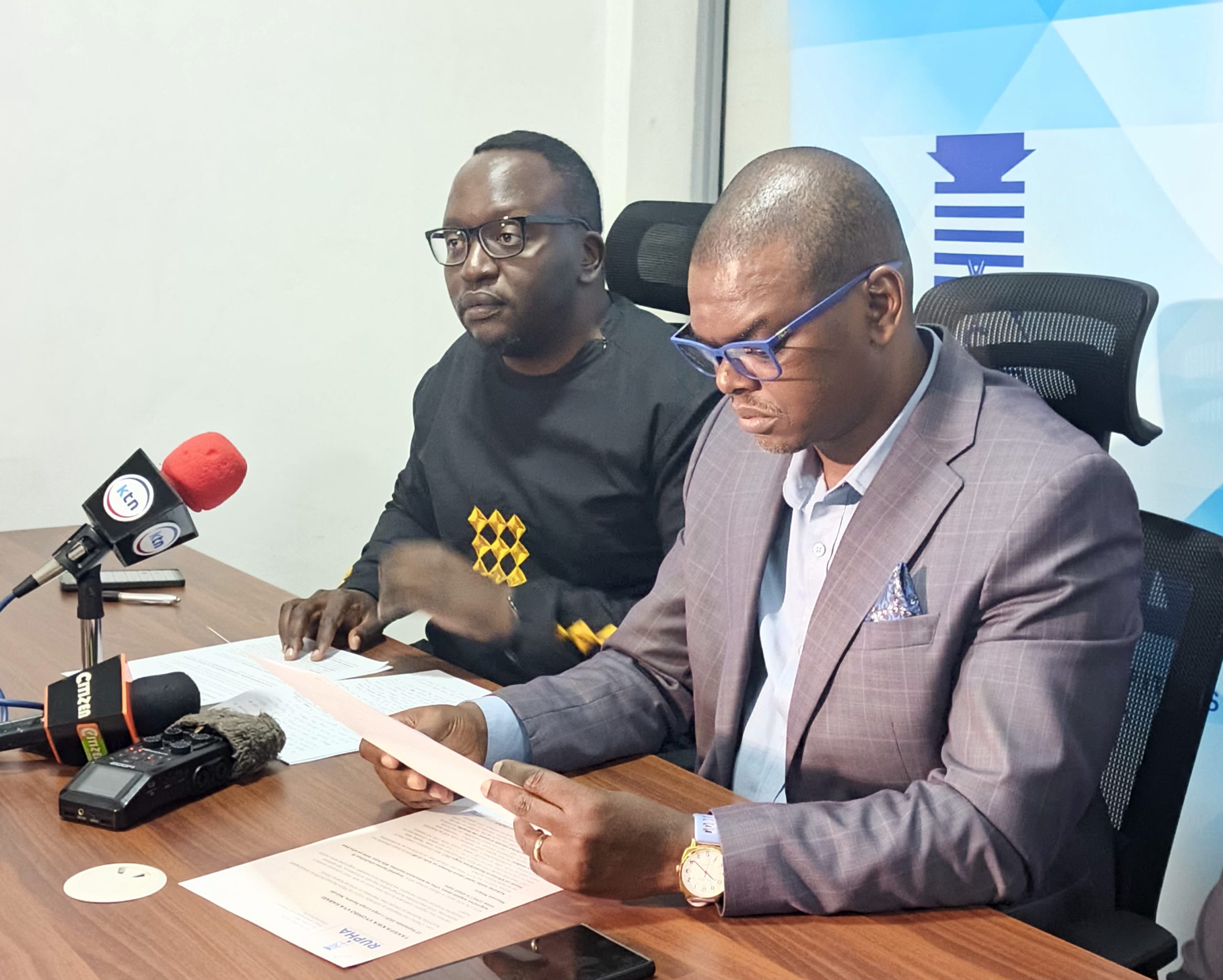RUPHA Pulls the Plug: Hospitals Suspend Credit to SHA Amid Mounting Debt Crisis.
22nd September 2025 | Lunga Lunga Square, Nairobi
By Editorial Team.
In a bold and sobering move, the Rural and Urban Private Hospitals Association of Kenya (RUPHA) has officially suspended the provision of healthcare services on credit to the Social Health Authority (SHA). The decision, announced at a press conference in Nairobi, marks a pivotal moment in Kenya’s universal health coverage (UHC) journey, as over 700 private and faith-based health facilities collectively draw the line on unsustainable financing.
This development follows the expiry of a two-week notice, issued on 5th September 2025, that gave SHA time to address a series of long-standing grievances. With no action or engagement from the Ministry of Health or SHA, RUPHA has deemed the suspension unavoidable.
Why RUPHA Is Suspending Credit
The root of the crisis, RUPHA stated, lies in the SHA’s failure to honour its contractual and financial obligations. According to the association:
- On 27th August 2025, the Cabinet Secretary for Health, Hon. Aden Duale, ordered the blanket rejection of Kshs 10.6 billion in medical claims — without following due process as stipulated under Clause 8.2.2 of the SHA Provider Contract. This denied hospitals their right to clarify or remedy the rejected claims.
- SHA has abandoned its automated claims system in favour of manual, opaque processes vulnerable to bias, resulting in discrimination and delays in payments.
- Essential services, including dialysis and cancer care, are being denied to patients on questionable grounds, such as “exhaustion of approved sessions” — a clear indication, RUPHA asserts, that SHA is struggling to stay afloat.
A Health System in Financial Paralysis
RUPHA chairpersons and senior hospital representatives described the situation as “financial paralysis”, stating that hospitals have effectively loaned Kshs 76 billion in services to SHA without reimbursement — a staggering amount that risks the collapse of Kenya’s private health infrastructure.
“Hospitals have been the ones holding up SHA. It is not SHA that has been working; it is hospitals that have been working — and receiving no payment,” said a RUPHA Chairman Brian Lishenga.
The association emphasized that this is not just a dispute between hospitals and a government agency, but a wake-up call on the unsustainability of the SHA model. Despite collecting 2.75% of gross income from salaried Kenyans, the system remains deeply indebted and lacks a clear financial recovery plan.
The Hidden Crisis: Patients Are Already Paying Out-of-Pocket
While the SHA promises free healthcare under the Universal Health Coverage umbrella, RUPHA revealed a starkly different reality on the ground. Patients are increasingly paying out-of-pocket, even for services supposedly covered by SHA.
Furthermore, 3,500 maternity beds and over 10,000 inpatient beds have been wiped out from the system under what the Digital Health Agency claims is a fraud crackdown. RUPHA maintains this is yet another desperate measure to contain a collapsing financing model.
Demands and Conditions Going Forward
RUPHA presented five immediate demands to the Ministry of Health and SHA:
- Immediate reversal of the Kshs 10.6 billion in rejected claims and reinstatement of due process in claim reviews.
- Settlement of historical debts dating back to 2017, in line with the President’s directive earlier this year.
- An end to unprocedural downgrading and closure of healthcare facilities, which has reduced national bed capacity drastically.
- No migration of the teachers’ and police medical schemes to SHA in December until all debts under the current administrators are paid in full.
- A complete overhaul of SHA’s financing model, which currently burdens only 10% of Kenyans with 96% of the cost.
“Enough is Enough”
RUPHA declared that, except for emergency and critical care, no further credit services will be extended to SHA. The association called on the Church and other faith-based hospital sponsors to speak out, as many mission hospitals face debt and potential closure.
“SHA is on life support — and today, hospitals are pulling the plug,” the spokesperson declared. “We are no longer willing to prop up a system that refuses to listen, refuses to reform, and refuses to pay.”
A Call for Humility and Dialogue
The association urged Cabinet Secretary Aden Duale and SHA leadership to return to the drawing board and engage with stakeholders in good faith. They emphasized that while SHA’s intentions may have been noble, the execution has failed, and unless addressed, Kenya’s healthcare system faces imminent collapse.
“It’s not too late for SHA — but it’s too late for hospitals to extend any more credit,” RUPHA concluded.
What This Means for Kenyans
Kenyans relying on SHA for medical care should be aware that many private and mission hospitals are no longer accepting SHA cards for non-emergency care. RUPHA encourages patients to seek clarity before seeking services and hopes that urgent action from the government will prevent further disruption.










